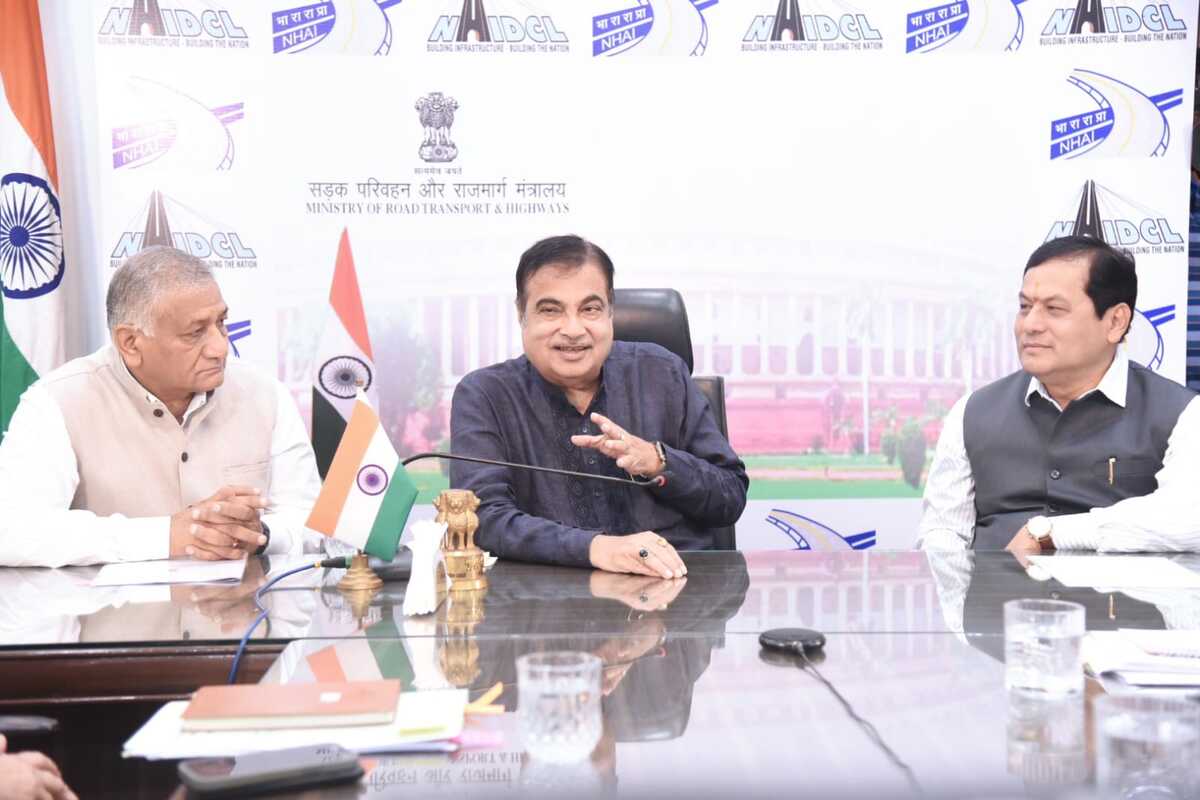India and NATO~III
It can be said that India’s Taiwan policy options are limited. We cannot take on the Chinese single-handedly. QUAD’s policy towards Taiwan is somewhat vague and ambiguous.

Photo: Twitter @nitin_gadkari
Finally, India has introduced its own car safety rating system. The Ministry of Road Transport and Highways has launched the Bharat New Car Assessment Programme (BNCAP), a voluntary starrating system to assess and evaluate vehicle safety in crashes. It will come into effect from 1 October 2023, and vehicles up to 3.5 tonnes will receive one to five stars based on their collision performance. With this announcement, India is reported to have become the fifth country worldwide to implement such a programme. And about time too. With only one per cent of the world’s vehicles, India accounts for almost 10 per cent of all road crash related fatalities.
Poorer households bear a higher proportion of the socio economic burden of road accidents due to loss of income (over 70 per cent of crash victims belong to economically disadvantaged households), high medical expenses and limited access to social safety nets. According to a World Bank study, road crashes are estimated to cost the Indian economy up to seven per cent of GDP a year.
Government data shows that each year road accidents in India kill about 1,50,000 people and injure another 4,50,000. More than half of the victims are pedestrians, cyclists, or motorcyclists and almost 84 per cent of all fatalities are among road users between the working ages of 18 to 60 years. The World Bank has already pledged to support the government’s efforts to reduce incidents of road crashes by creating efficient institutional mechanisms for safer roads, vehicles, and strengthening efforts to provide better on-the-spot care to victims of road crashes.
Advertisement
Indian automakers had previously subjected their vehicles to testing through the Global New Car Assessment Programme (GNCAP), which is an initiative under the United Kingdom-based Towards Zero Foundation striving for global adherence to vital United Nations vehicle safety standards. It serves as a standardised platform to foster international collaboration among new car assessment programmes (NCAPs), offering dependable crash safety insights based on common criteria. Indian authorities say Bharat NCAP aligns with global crash test protocols while considering Indian regulations.
It allows manufacturers to test vehicles locally and cut costs associated with overseas NCAP-accredited centres. Though NCAPs are not obligatory, these are designed to encourage manufacturers to go beyond basic safety standards and promote competition in incorporating advanced safety features. Well done is half begun.
But if the government is serious about achieving the primary objective of Bharat NCAP, which is to help raise road safety standards by encouraging vehicle manufacturers to prioritise safety in their vehicle design and features, clearing the B-NCAP test with a minimum of, say, three stars needs to be made mandatory. Sooner rather than later. It could be a form of extended producers’ responsibility for the auto sector under a proper legal framework. Not only will such a move ensure fewer lives are lost on India’s killer roads, it would provide a fillip to the global competitiveness of Indian car manufacturers and increase exports of made and safety tested in India vehicles.
Advertisement